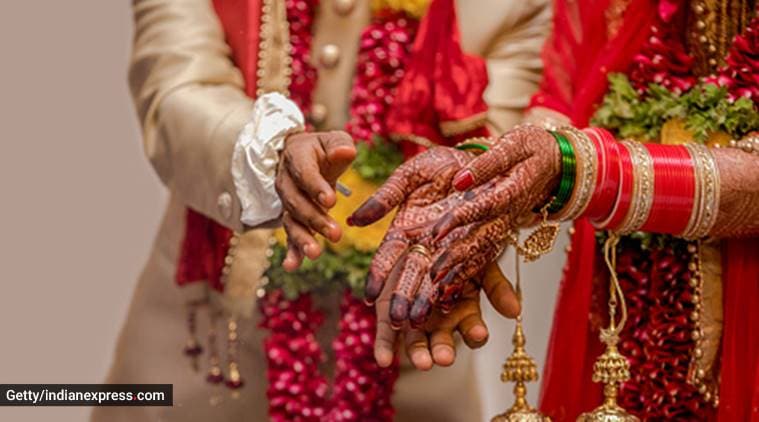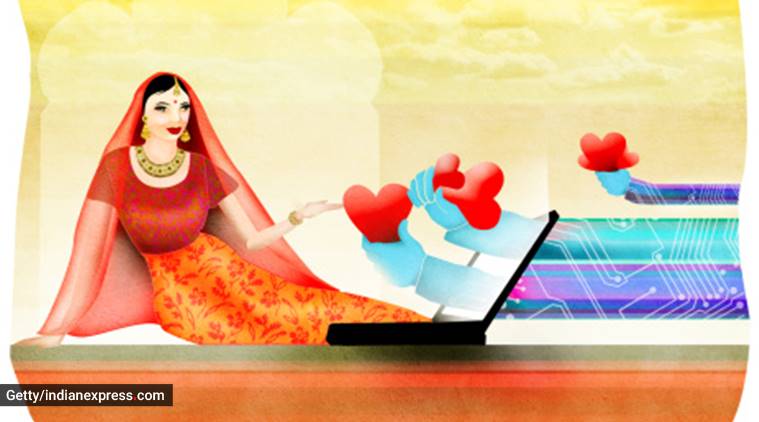
[ad_1]
 A lot of men and women today are still opting for an arranged marriage. (Source: Getty images)
A lot of men and women today are still opting for an arranged marriage. (Source: Getty images)
It has been a few months into trying out the prospect of arranged marriage. The decision came with the desire to find a decent, understanding companion I could share my life with. At the outset, let me tell you the process of finding a suitable match in this structure requires a considerable investment of time and energy. So after much deliberation, I finally decided to take the plunge.
As an independent, working woman of today, why did I choose to do this? Not because of a lack of faith in the ability to fall in love organically but an inkling that perhaps sometimes love is not just enough. The structure of arranged marriage, on the contrary, was allowing me to pick and choose the man who suited my criteria — including emotional intelligence — and help me eliminate apparent risks in a relationship like any toxicity that sometimes go unnoticed, ignored or encountered later in an otherwise organic romantic bond. This, of course, does not go to suggest that an arranged marriage would turn out to be risk-free, but an early red flag gives you the chance to opt out of the match without any baggage.
The criticism surrounding the latest Netflix series Indian Matchmaking has repeatedly harped on the “outdated” concept of arranged marriage. Perhaps the fact that we see progressive and successful men and women of today (as shown in the series) still going ahead with the set-up challenges the argument in a way. And we millennials are familiar with such people or are trying out the option ourselves, whether we want to admit it or not.
Again, if someone is opting for an arranged marriage, it is not always because they were forced by their parents. On matrimonial websites, many men and women handle their own profiles and are able to exercise agency in choosing the right match. But that is of course not an easy task. You have to go through numerous profiles and interact with a number of potential matches before making a decision, which is an extremely exhausting process.
Read| 10 hilarious moments from Indian Matchmaking that left us in splits
With ample matrimonial websites available today, you do not need to fall back on a Sima aunty every time. Each of these sites offers you a range of suitable matches to pick from, based on your preferences. Much to a critic’s dislike, each of them requires you to mention what you need in a partner–from height, caste (which is optional), food choices to annual income. Much like the men and women in the Netflix series. But perhaps these are also factors one would consider in a non-arranged relationship as well. There are instances where Sima Taparia’s NRI clients insist on finding someone who would relate to or at least empathise with their culture and traditions. As for someone, who has been living away from home and working in another city, even though in the same country, I would not hesitate to admit that sometimes there is a pining for people who share the same roots or have a sense of it. And that really does not come in the way of one’s being inclusive.
 Men and women on matrimonial websites have the agency to pick and choose their partners. (Source: getty images)
Men and women on matrimonial websites have the agency to pick and choose their partners. (Source: getty images)
Besides, asserting one’s desire for certain physical features and other qualities in a partner is not just restricted to an arranged marriage set-up. The first step towards falling in love in general, in many situations, is attraction which, whether we like it or not, is based on certain preconceived ideas — whether or not politically incorrect — of what one is looking for in a man or woman. So by heaping all blame on a single show for being sexist and regressive, one would only distance himself or herself from the reality portrayed in the show. Let’s face it, even today there are countless Indian men and women who harbour patriarchy and practise it in their daily lives; one does not have to sign up for an arranged marriage for the truth to be exposed.
Read| 59% millennials would like to have a planned marriage: Survey
Perhaps arranged marriage is not the problem here; the way we treat it is. Through the websites, I have personally come across men who are still worried about a woman being too progressive to be a part of their family. But the problem here is how they have been conditioned and have nurtured gendered stereotypes, which is definitely not limited to their preferences for a potential wife. There is room for improvement and the only way to resolve sexist challenges in any marriage — not just arranged — we need to rethink our values and perceptions as a society. To look at arranged marriage in isolation would perhaps be unfair.
For more lifestyle news, follow us: Twitter: lifestyle_ie | Facebook: IE Lifestyle | Instagram: ie_lifestyle
📣 The Indian Express is now on Telegram. Click here to join our channel (@indianexpress) and stay updated with the latest headlines
For all the latest Lifestyle News, download Indian Express App.
© IE Online Media Services Pvt Ltd
[ad_2]
Source link